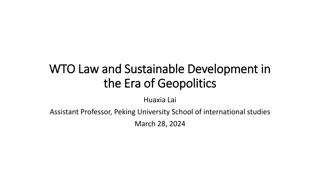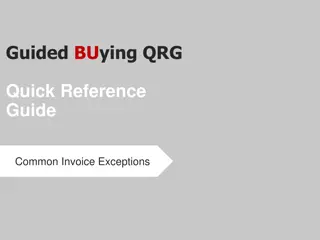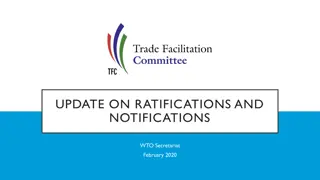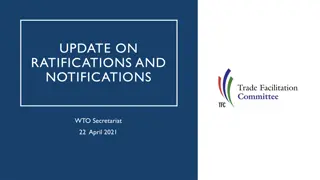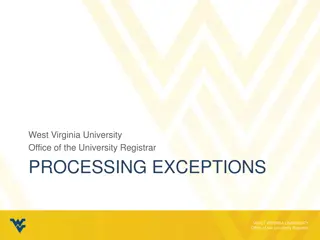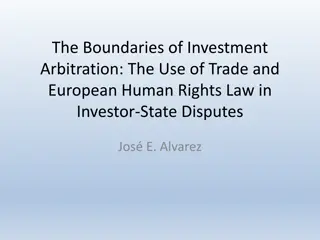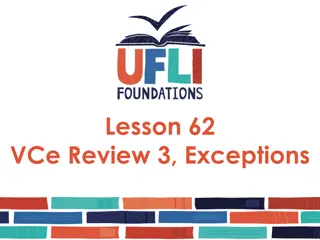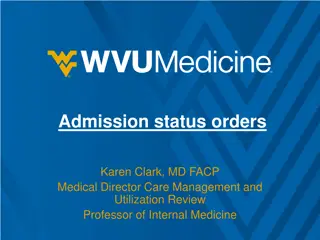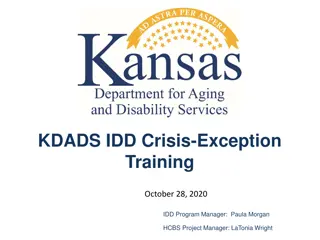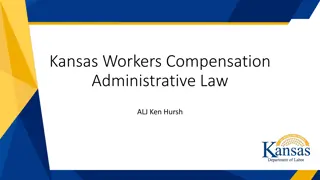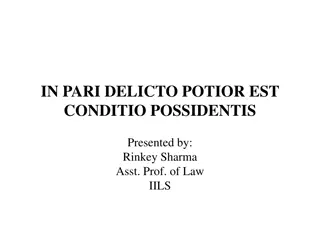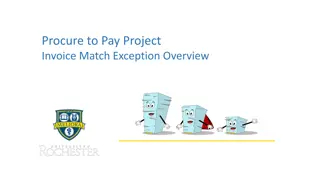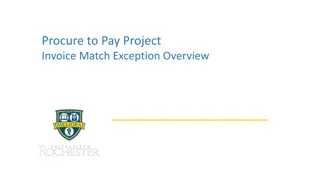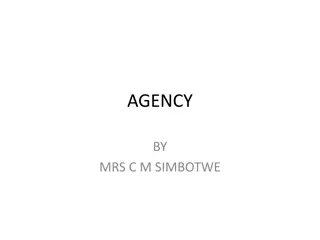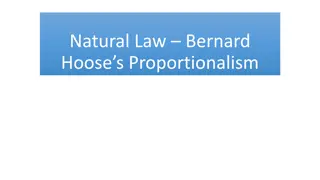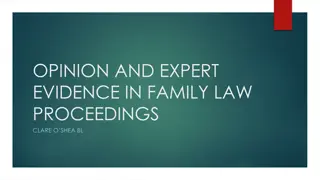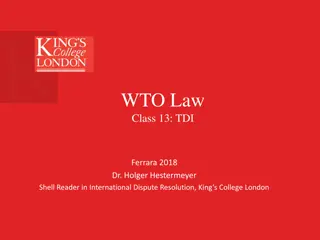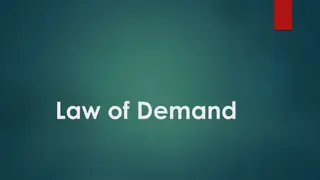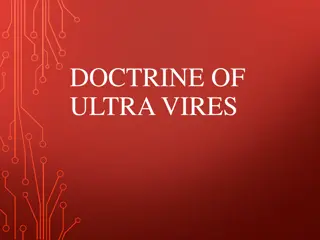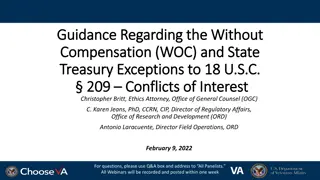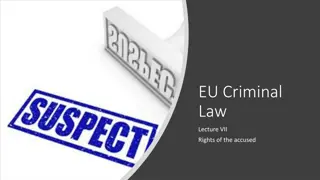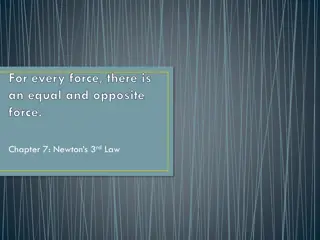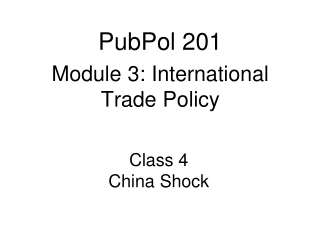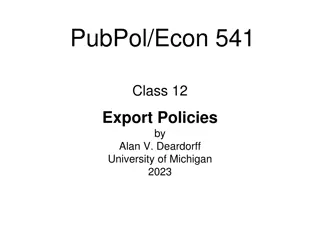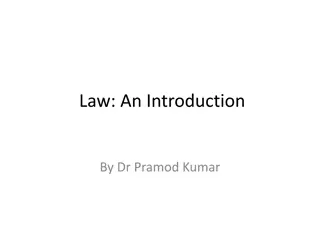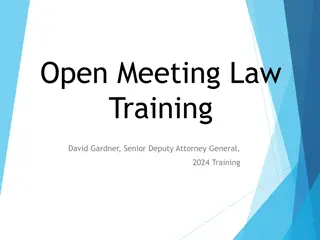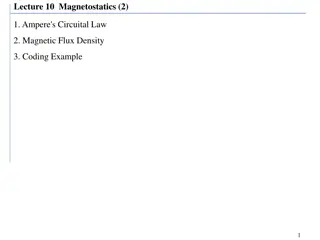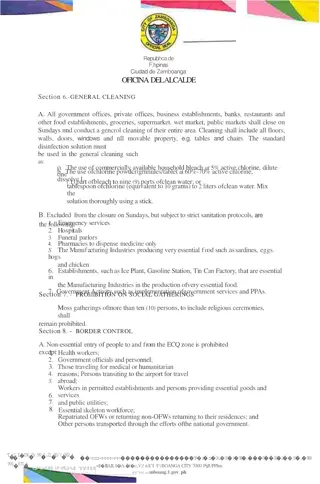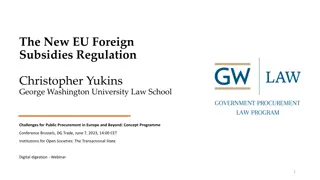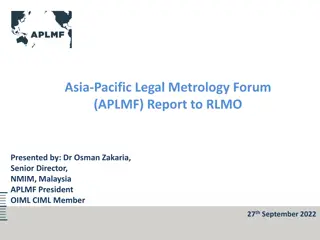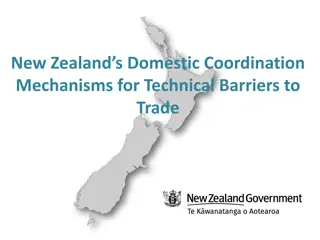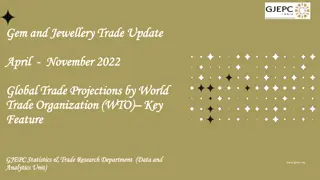Understanding GATT General Exceptions in WTO Law
Explore the intricacies of General Exceptions under the GATT framework, focusing on purpose, applicability, and relevant legal provisions. Delve into the two-tier test applied in WTO case law and the burden of proof considerations, with a specific case study on US Shrimp. Understand the nuances of Article XX and its applications in relation to exhaustible natural resources conservation.
Download Presentation

Please find below an Image/Link to download the presentation.
The content on the website is provided AS IS for your information and personal use only. It may not be sold, licensed, or shared on other websites without obtaining consent from the author. Download presentation by click this link. If you encounter any issues during the download, it is possible that the publisher has removed the file from their server.
E N D
Presentation Transcript
WTO Law Class 7: GATT General Exceptions Ferrara 2018 Dr. Holger Hestermeyer Shell Reader in International Dispute Resolution, King s College London
Introduction to General Exceptions Purpose Applicability (GATT v non GATT?) Public policy interests (closed v open list?) Extraterritoriality? GATT Panel Tuna/Dolphin v AB Shrimp/Turtle ( 121) Structure (two-step analysis) Proportionality principle (suitability, necessity, proportionality stricto sensu) Burden of proof
General exceptions Relevant WTO legal provisions Relevant WTO legal provisions: Article XX of GATT 1994 / Article XIV of GATS WTO case law on Article XX generally WTO case law on Article XX generally: Two-tier test Appellate Body Reports, US Gasoline, Brazil Retreaded Tyres: o Does the measure fall under an exception listed in a subparagraph of Article XX? o Does the measure in question satisfy the chapeau of Article XX? necessary or related to Appellate Body Reports, Korea Beef, US Gasoline : o Is the measure necessary to achieve the intended objective? o Is the measure related to the achievement of the objective? Chapeau Appellate Body Report, Brazil Retreaded Tyres: o Does the measure in question constitute an arbitrary or unjustifiable discrimination between countries where the same conditions prevail ? o Does the measure in question constitute a disguised restriction on international trade ? Burden of proof : o Which participant is responsible for proving which elements of the legal test?
Article XX(g) exhaustible natural resources relating to the conservation of exhaustible natural resources if such measures are made effective in conjunction with restriction on domestic production or consumption Jurisdictional limit? sufficient nexus between the sea turtles and the US (AB Shrimp/Turtle, 133) exhaustible natural resources : stocks of salmon (Canada-Salmon GATT) clean air (US-Gasoline) sea turtles (Shrimp/Turtle) (sustainable development) relating to means/end relationship (in light of design and structure of the measure) ( primarily aimed at ) GATT Panel Canada- Salmon reasonably related + close and genuine relationship of ends and means + rational connection (AB Shrimp/Turtle 141)
Article XX(b) Human, Animal or Plant Life or Health necessary to protect human, animal or plant life or health Two aspects: Is the measure designed to pursue a policy of protecting life or health? Is the measure necessary to achieve this objective? the measure is apt to make a material contribution to the achievement of its objective AB Brazil-Retreaded Tyres 150 EC Asbestos Evidence about health risk France s chosen level of protection Controlled use as a reasonable alternative? No
necessary making a contribution <> indispensable Proportionality? Available measures (early GATT)? 1) weighing and balancing the following factors contribution made by the compliance measure to the enforecement of the law importance of the common interests or values protected accompanying impact of the law on imports Members enjoy right to set the appropriate level of protection 2) Is a less trade-restrictive alternative reasonably available? Does it impose an undue burden on the regulating state? (China-Audiovisual, 327) Who names possible measures?
Article XX(a) Public morals necessary to protect public morals Public morals: standards of right and wrong conduct maintained by or on behalf of a community or nation Members enjoy some scope to define and apply for themselves the concepts of public morals scope/concept of public morals are influenced by each Members prevailing social, cultural, ethical and religious values Panel and AB China Audiovisual Products: there are reasonable alternatives available
Article XX(d) Compliance Measures necessary to secure compliance with laws or regulations which are not inconsistent with the provisions of this Agreement, including those relating to [...] the prevention of deceptive practices Three aspects: designed to secure compliance with laws that are not inconsistent with GATT necessary to secure such compliance
Chapeau Subject to the requirement that such measures are not applied in a manner which would constitute a means of arbitrary or unjustifiable discrimination between contries where the same conditions prevail, or a disguised restriction on international trade... arbitrary & unjustifiable discrimination & disguised restriction on trade: avoiding abuse or illegitimate use of exception more than one alternative action available (Gasoline) is there a reasonable justification for the discrimination? (Gas.) no attempt to find/negotiate an international solution with the claimants (Shrimp) limited flexibility, lack of transparency/predictability (Shrimp) no rational connection to the Art XX objective (Brazil tyres)



